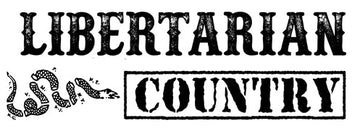The debate over whether junk food should be eligible for purchase with food stamps (SNAP benefits) has flared up again, especially in light of RFK Jr.’s proposal to ban junk food from the program.
At first glance, it seems like a simple health issue: America faces an obesity crisis, and taxpayers shouldn’t be footing the bill for soda, candy, and chips. Right? But when examined through a libertarian lens, the issue is less about food and more about freedom, responsibility, and government overreach.
Freedom of Choice and Personal Responsibility
The Supplemental Nutrition Assistance Program (SNAP) provides financial assistance for food to more than 40 million Americans. Once those benefits are distributed, recipients are generally free to spend them on a wide range of grocery items. Restricting what people can buy—micromanaging their grocery carts—treats adults like children incapable of making their own decisions.
From a libertarian standpoint, the principle is straightforward: individuals, not bureaucrats, should decide what they consume. Attempting to separate “good” foods from “bad” foods is both paternalistic and arbitrary.
For example, a USDA study once found that about 9 percent of SNAP dollars are spent on sweetened beverages, while about 20 percent go to meats, poultry, and seafood.
Who decides what counts as “junk” and what qualifies as healthy?
Should soda be banned but not red meat? Should frozen pizza be disqualified while white bread remains eligible? What about organic vs inorganic, free-range, gluten-free, pesticide-free, grown with enough sunlight, microplastic-free water? The list goes on.
A vegan might argue that all meat is junk; a carnivore diet advocate might claim bread is poison. It all depends on who is running the government at the time. Once they have the power to decide, personal freedom digests itself. The government has no objective, universal standard for such decisions.
The Real Problem: Taxpayer Subsidies
While people should be free to buy whatever they want, the problem is that taxpayers are compelled to subsidize those choices. SNAP benefits cost more than $100 billion annually. That means every taxpayer is forced to underwrite the food purchases of others, whether healthy or not.
This is where libertarians part ways with both the paternalists and the permissive. The injustice is not that someone buys a bag of Doritos, but that someone else is coerced into paying for it. The problem isn’t junk food; it’s the subsidy itself. If you want true freedom, government should not be in the business of redistributing wealth for consumption in the first place. Voluntary charity, not coercive taxation, is the moral path to helping the poor.
Public Health and Government Control
It is true that the United States faces a serious health crisis. The Centers for Disease Control and Prevention reports that more than 42 percent of American adults are obese, with obesity-related conditions like heart disease, stroke, and type 2 diabetes among the leading causes of preventable death. This reality drives much of the political appetite for regulating food choices under SNAP.
Yet history shows us that once government gains the power to control what people consume, it rarely stops at moderation. Today it may be soda; tomorrow it could be bacon, sugar, or even caffeine. Using the welfare state as a tool for dietary engineering not only erodes liberty but also reinforces dependency on government programs. A healthier population will not emerge from bans and restrictions but from education, responsibility, and cultural change.
The Libertarian Conclusion
Should people be allowed to buy junk food with food stamps? From a libertarian perspective, yes—because once assistance is given, individuals should have full freedom of choice. But in a deeper sense, the entire structure of SNAP forces the public to subsidize private consumption. That is the true injustice.
What is a better path?
Allow individuals full freedom of choice while working toward a society where welfare programs are minimized, voluntary charity is emphasized, and individuals are responsible for their own lives.
The long-term solution is not endless lists of banned foods but a transition away from welfare dependency, toward voluntary charity and personal responsibility. Only then can freedom and accountability coexist without government paternalism.
Stay principled in style! 👇



